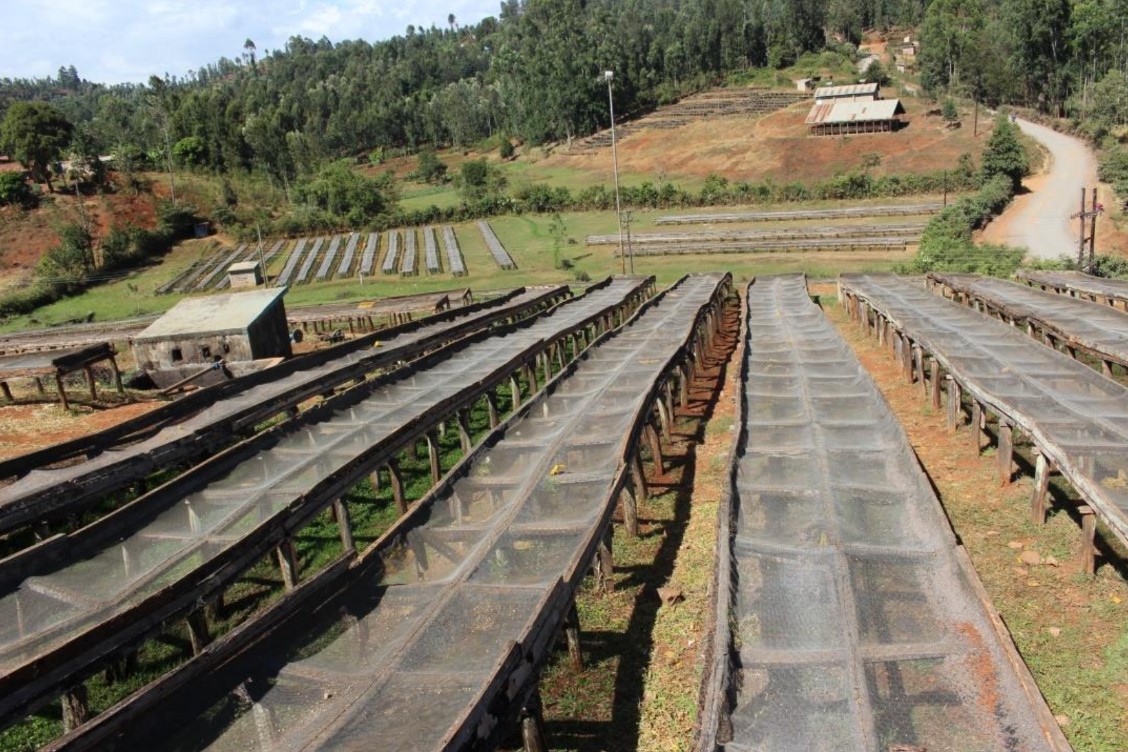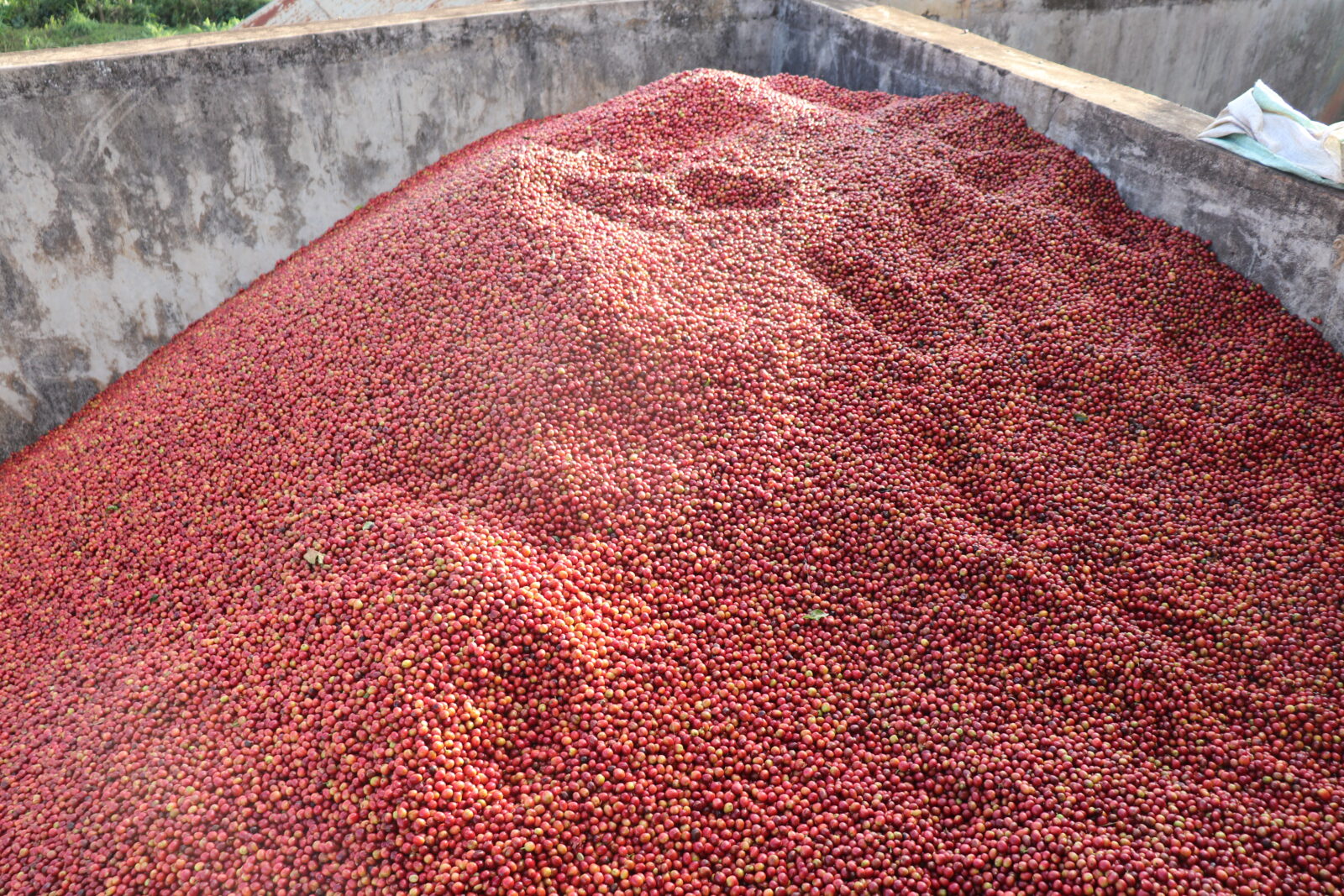Riakiberu AA
Orgin Information
Elevation Ave:
Farm Name: Riakiberu
Farm Name – Riakiberu Coffee Factory
County – Murang’a County
Coffee Varieties – Ruiru 11,SL 28, Batian
Flower season – March till April and September till October
Harvest season – May through June and November through December
Annual Rainfall – 1,200mm
Temperature – 16-26°C
Altitude – 1,650m above sea level
Soil – Volcanic soils
Processing Method – Fully Washed
Membership – 1,542 farmers
BACKGROUND
Riakiberu factory was established in 1994. Kamacharia Farmers co-operative society was registered under cooperative society act 1993 after the liquidation of the then Kagima Farmers Co-operative society limited. Kamacharia society was registered under the cooperative society act of 2000. It was formerly part of the Giant Tetu coffee farmer’s society. This factory has 1,542 active members. Riakiberu coffee factory belongs to the Kamacharia Farmers Cooperative Society in Kamacharia location, Murang’a County. It maximizes their production by following training in Good Agricultural practices, with application of manure and inputs when required. The society is made up of smallholders growing mainly SL28, with a small amount of Batian and Ruiru 11 varieties. This area has two harvests, one from March to May, and the main harvest season being from October to December. Riakiberu Coffee Factory is dressed with red-volcanic soil that infuses it with all the mineral and organic goodness necessary for optimum production. It experiences an annual rainfall of 1,200mm at 1,650m above sea level. In addition it enjoys cool temperatures of 16-26°C.
PROCESSING
Washing; during this process the cherry and mucilage surrounding the parchment is removed with the use of friction, fermentation and water. Once the ripe cherries have been picked, they are delivered to a wet mill where they are loaded into a depulping machine which forces the beans out of the cherry. At this stage, the beans are contained within the pulp of the cherry, also known as the mucilage. This sticky mucilage is composed of natural sugars and alcohols and contributes massively to the sweetness, acidity and overall flavour profile of the coffee. Fermentation; once the beans have been pulped, they are put into fermentation tanks for around 12-24 hours depending on temperature, though farmers are now experimenting with fermentation time to develop different flavour profiles. Fermentation results in the mucilage being broken down leaving the beans in their parchment which are then ready to be washed. Once the beans have been washed they will feel gritty in your hands which means they are now ready to be dried. Drying process; at this stage, the parchment beans are taken to drying tables (raised African beds) for a period of around 10-22 days where they are gently turned. It is widely accepted that a slower drying time contributes to greater balance and complexity in the cup.



